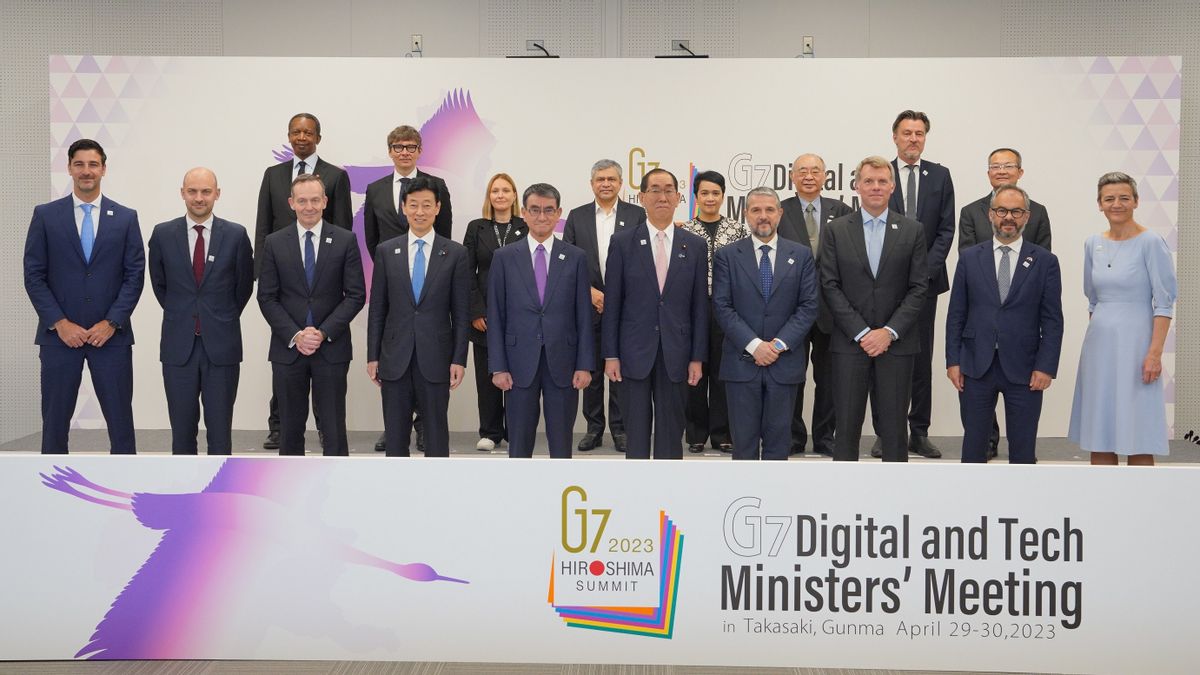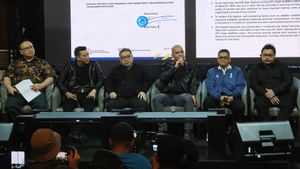JAKARTA - Digital ministers from G7 countries agreed to adopt risk-based regulations against artificial intelligence on Sunday 30 April, while policymakers in Europe are busy introducing AI Act laws to enforce rules on new tools such as ChatGPT.
"However, such regulations must also "maintain an open and possible environment" for the development of AI technology and are based on democratic values," the G7 minister said in a joint statement issued at the end of a two-day meeting in Japan.
Although ministers recognize that "policy instruments to achieve AI's trustworthy vision and goals may differ among Gmen's members, this deal sets a milestone for how major powers AI amid privacy concerns and security risks."
"The conclusion from this G7 meeting shows that we are definitely not alone in this regard," European Commission Executive Vice President Margrethe Vestager told Reuters before the deal.
The government in particular pays attention to the popularity of generative AI tools such as ChatGPT, a chatbot developed by OpenAI supported by Microsoft Corp, which has become the fastest growing application in history since its launch in November.
"We plan to hold future G7 discussions on AI genratives that could include topics such as governance, how to ensure intellectual property rights including copyright, promote transparency, overcome disinformation" including information manipulation by foreign powers, the minister said in a statement.
Italy, a G7 member, deactivated ChatGPT last month to investigate violations of personal data rules. Although Italy lifted the ban on Friday, April 29, the move has inspired other European privacy regulators to start an investigation.
On Thursday, April 28, EU policymakers reached an initial agreement on a new draft of its upcoming AI Act, including copyright protection measures for a generative AI, following calls for world leaders to hold summits to control such technologies.
Vestager, head of EU technology regulation, said the bloc "will have a political deal this year" on AI legislation, such as labeling obligations for images or music generated by AI, to address copyright and education risks.
Meanwhile, Japan, which hosts the G7 this year, has taken an accommodative approach to AI developers, pledging to support public adoption and the AI industry.
The English, Chinese, Japanese, Arabic, and French versions are automatically generated by the AI. So there may still be inaccuracies in translating, please always see Indonesian as our main language. (system supported by DigitalSiber.id)













